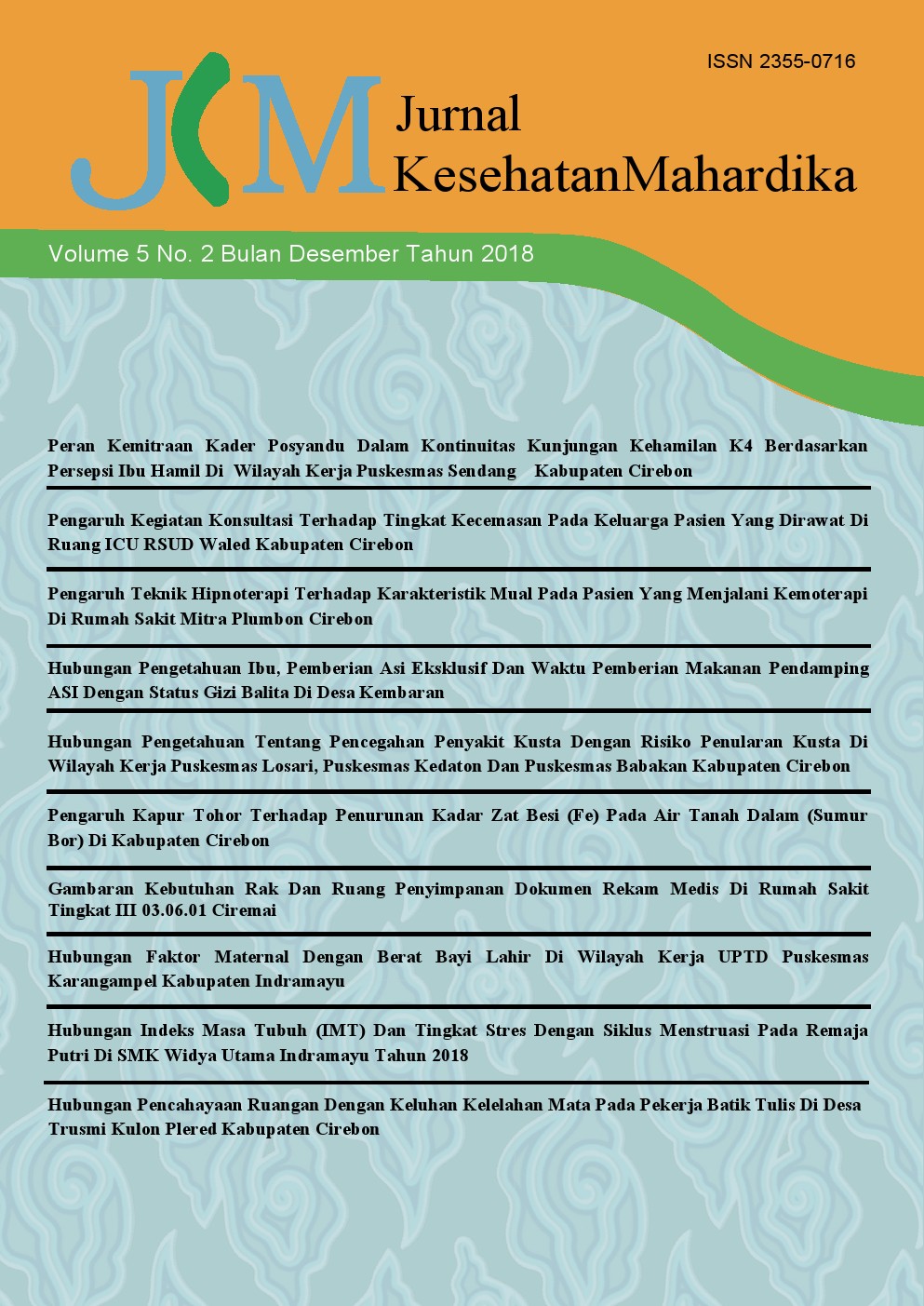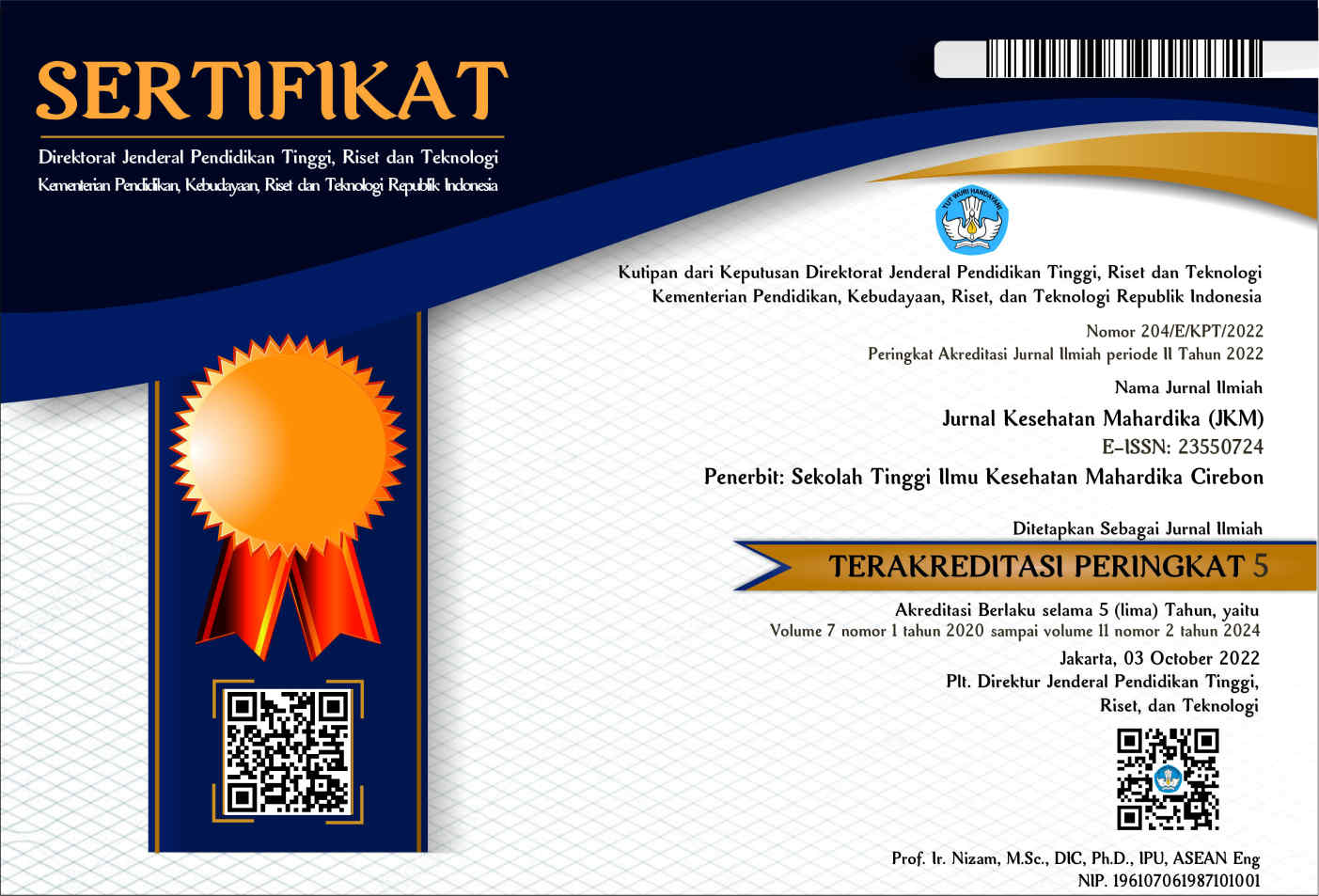The Role Of Partnership Of Integrated Service Post Cadre In The Continuity Of Pregnancy Visit Based On Perception Of Pregnant Women In The Working Area Of Sendang Community Health Center Cirebon District
Keywords:
The role of partnerships, integrated service post cadres, fourth pregnancy visits, perception pregnant womenAbstract
Background: The Maternal and Child Health Program is a priority part in efforts to improve health status in Indonesia. The 4th pregnancy visit coverage is one of the evaluation indicators in the fifth Millennium Development Goal (MDGs). In the scope of the MDGs it was stated that the target in 2015 was 95% (Basic Health Research, 2013). The frequency of antenatal care at least 4 times during the pregnancy period is 83.5% (Basic Health Research, 2013). Meanwhile, the Sendang Community Health Center has 155 integrated service post cadres the frequency of 1-1-2 or fourth antenatal visits at Sendang Community Health Care Cirebon Regency in January - March 2015 by 23%.
Purpose: This study aims to analyze the role of integrated service post cadre partnerships in the continuity of pregnancy visit based on perception of pregnant mother at the Sendang Community Health Center in Cirebon Regency.
Method: The type of research used is correlational with a prospective approach. The study population was all pregnant women who performed first pregnancy visit at the Sendang Community Health Center. The total sample is 76 people with total sampling technique. Primary data was obtained using a questionnaire, while secondary data was obtained from the ANC cohort register. Secondary data is entered into the checklist. Data was collected during the period from March to August 2015 in the work area of Sendang Community Health Center, Cirebon district. Statistical tests use Spearman's Rho Correlation with a significance level of 95% or 0.05 and two tailed.
Result: The results showed that most (81.6%) respondents played active partnerships in pregnant women both before, during and after integrated service post days in antenatal care based on perceptions of pregnant women, more than half of respondents (55.2%) made continuous pregnancy visits according to the schedule from first to fourth pregnancy visit, there is a weak positive correlation between the role of partnerships of integrated service post cadres in the continuity of fourth pregnancy visits based on the perception of pregnant women in the work area of Sendang Community Health Center in Cirebon District (ρ value = 0.003; α = 0.05).
Conclusion: The role partnerships of integrated service post cadres is one of the supporters in the fourth pregnancy visit of pregnant women to carry out pregnancy examinations. Therefore, there is an increase in the management of integrated service post cadres through coaching, giving motivation and appreciation, as well as evaluating their participation in ANC services by health workers and local health center leaders. In addition, home visits and counseling are needed for pregnant women and their families since the beginning of pregnancy in an effort to increase fourth visits during pregnancy.













